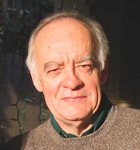
Merlin Donald, Professor Emeritus, Department of Psychology, and Faculty of Education, Queen’s University, Kingston, Ontario, Canada, Adjunct Professor, School of Culture and Society, Department of the Study of Religion, Aarhus University
Merlin Donald is a cognitive neuroscientist with a background in philosophy, he is the author of many scientific papers, and two influential books: Origins of the Modern Mind: Three stages in the evolution of culture and cognition (Harvard, 1991), and A Mind So Rare: The evolution of human consciousness (Norton, 2001).
His PhD was obtained from McGill University in 1968, and he spent four and a half years associated with the Yale University School of Medicine, first as an NRC postdoctoral fellow, and then as a Research Neuropsychologist. He has been at Queen’s University since 1972, and during that time, he has also been a visiting professor at University College, London; Harvard University; UCSD; Stanford University; and elsewhere. He was also founding chair of a new Department of Cognitive Science at Case Western Reserve University in Ohio, and remains on faculty there as Adjunct Professor. He has been a Visiting Fellow at the Center for Advanced Studies in the Behavioural Sciences, at Stanford, California, and a Killam Research Fellow. He was elected a Fellow of the Canadian Psychological Association in 1984, and a Fellow of the Royal Society of Canada in 1995. He was recently (2006) elected a Fellow of the World Academy of Art & Science.
Professor Donald is in considerable demand as an academic lecturer, having delivered, among others, the Donald Olding Hebb Lecture at McGill University, the William Bennett Munro Memorial Lecture at Caltech, the Walter Morris Philosophy of Science Lecture at the University of Arkansas for Medical Sciences, the Crowder Lecture at Yale University, and served as invited lecturer at the World Forum of Cultures in Barcelona, Spain, and the European Forum in Alpbach, Austria.
In 1997, a conference held at the University of Cambridge, UK, was dedicated to the pioneering work of Professor Donald on human cognitive origins. In his introduction to the book, Cognition and Material Culture , that followed from that conference, the noted British archaeologist Colin Renfrew wrote: “Merlin Donald’s Origins of the Modern Mind (1991) may be regarded as the most coherent statement which we yet have concerning the development of human cognitive abilities.” He is currently working on a book on the topic of “Cognitive Governance.”
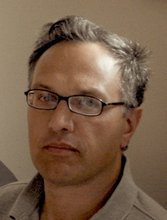
Pascal Boyer, Henry Luce Professor of Individual and Collective Memory at Washington University in St. Louis, Adjunct Professor, School of Culture and Society, Department of the Study of Religion, Aarhus University
Pascal Boyer works in the Memory and Development Laboratory of the Psychology Department, Washington University. He also manages the Luce Program in Individual and Collective Memory. He is the author of scientific articles and a number of influential books, among others The Naturalness of Religious Ideas: A Cognitive Theory of Religion (Berkeley, 1994) and Religion Explained: The Evolutionary Origins of Religious Thought (New York, 2001). His research is aimed at describing neuro-cognitive systems that [a] are part of the normal make-up of human minds as a result of evolution by natural selection and [b] support the acquisition of cultural knowledge, concepts and norms. A good part of this research consists in experimental studies of adults and young children in natural and lab contexts. Current studies focus on anxiety and ritual behavior, on source memory and on early numerical capacities.
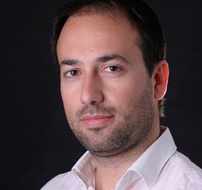
Dimitris Xygalatas, Associate Professor, Interacting Minds Centre, Aarhus University, and Assistant Professor, Department of Anthropology, University of Connecticut
Dimitris Xygalatas is an anthropologist and cognitive scientist who studies cognition and culture with an emphasis on ritual and religion. His research focuses on the application of scientific methods and technologies in ethnographic field research. He has conducted several years of fieldwork in Southern Europe and Mauritius, where he studied extreme rituals and their effects on both the individual and the social level by combining ethnographic and experimental methods. He has held positions at the universities of Princeton and Masaryk, where he served as Director of the Laboratory for the Experimental Research of Religion (LEVYNA). He currently holds a joint position between Aarhus University and the University of Connecticut, where he is directing the Experimental Anthropology Lab.
He is the Secretary General of the International Association for the Cognitive Science of Religion, co-Editor of the Journal for the Cognitive Science of Religion, and director of the Mauritian Laboratory for Experimental Anthropology.
His work has been published in journals across disciplines such as Anthropology, Religious Studies, Psychology, Biology, and some of the top general science journals. His books include The Burning Saints: Cognition and Culture in the Fire-walking Rituals of the Anastenaria (Equinox 2012), and Mental Culture: Classical Social theory and the Cognitive Science of Religion (Acumen 2013, co-edited with William W. McCorkle).
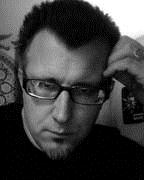
Donald M. Braxton, J. Omar Good Professor of Religious Studies, Chair, Department of Religious Studies, Juniata College, Huntingdon, Pennsylvania, USA
Donald M. Braxton is a native of the mid-Atlantic region of the United States. He received his B.A. from Wittenberg University, and his A.M. and Ph.D. from the University of Chicago. His work is in the area of the evolution of religion, with a particular interest in the applications of information theory and computer modeling for evolutionary explanations of religion. He serves on the board of IRAS (Institute on Religion in an Age of Science) and publishes often in its journal Zygon. His research is in the field of simulating religious behavior utilizing multi-agent platforms. While in Aarhus, he is working on modeling triggers for religiously motivated violence, the cognitive consequences of public display and treatment of dead bodies, the minimal frequency requirements for HADD activations, and environmental cues for religious cognition (so-called distributed cognition).
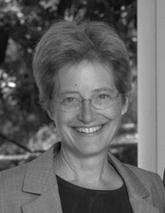
Ann Taves, Professor of Religious Studies, Virgil Cordano OFM Chair in Catholic Studies, Department of Religious Studies, University of California Santa Barbara, USA
The focus of Ann Taves’ research has shifted from answering historical questions about religion to using historical materials to explore how people make sense of ambiguous events and experiences that inhabit the indeterminate space between imagination and reality, craziness and inspiration, fiction and faith. In exploring these processes, she works comparatively to generate the detailed descriptive analyses favored by scholars of religion and to explore the naturalistic explanations developed by researchers in the social and natural sciences. Ann Taves has published numerous scientific articles and several influential books, among them Fits, Trances and Visions: Experiencing Religion and Explaining Experience from Wesley to James (Princeton, 1999) and Religious Experience Reconsidered: A Building-Block Approach to the Study of Religion and Other Special Things (Princeton, 2010), which was Winner of 2010 Distinguished Book Award, Society for the Scientific Study of Religion and one of Choice's Outstanding Academic Titles for 2010.
As a faculty participant in the graduate Emphasis in Cognitive Science, she teaches courses that focus specifically on topics in the evolutionary and cognitive science of religion and others that integrate that approach alongside others. She draws particularly from research on situated cognition (embodied and embedded) in order to understand the connections between cognitive and cultural processes. She is interested in how people use cognitive schemas to structure the transmission of ideas and practices, the way that people use things (people and objects) they perceive as special to enable them to behave in new ways, and why people perceive some things as more special than others.
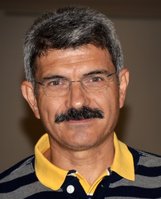
Panayotis Pachis, Professor, Religious Studies, Aristotle University, Thessaloniki, Greece
Professor Panayotis Pachis is co-editor of Theoretical Frameworks for the Study of Graeco-Roman Religions (2002), Hellenisation, Empire and Globalisation: Lessons from Antiquity (2004) and Imagistic Traditions in the Graeco-Roman World: A Cognitive Modeling of History of Religious Research (2009).
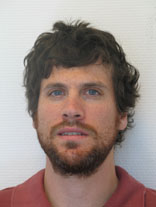
Gabriel Levy, Associate Professor, Department of Archaeology and Religious Studies, Norwegian University of Science and Technology, Trondheim, Norway, and Research Fellow, School of Culture and Society, Department of the Study of Religion, Aarhus University
Gabriel Levy has a BA in Anthropology and Religion from Dartmouth, and his MA and PhD in Religious Studies from the University of California, Santa Barbara. His research area is primarily Judaism, and particularly the Hebrew Bible. His honors thesis at Dartmouth was an ethnography of a Hasidic community in Miami Beach, while his MA was an analysis of religious genius as represented in the Talmud.
His PhD dissertation examined the emergence and history of Biblical prophecy in light of the cognitive effects of literacy. His present work continues to examine the cognitive effects of literacy on religion and the study of religion, but is especially interested in thinking through the way technology materially extends cognition. Over this time he has had a continued interest in the philosophy of language, and in particular how semantics is materially embodied in both brain physiology and intersubjective triangulation.

Konrad Talmont-Kaminski, Associate Professor, Faculty of Psychology, University of Finance and Management in Warsaw, Poland
A philosopher by training, Dr. Talmont-Kaminski’s research focuses upon the cultural, cognitive and evolutionary factors that help to determine the degree to which empirical considerations shape human beliefs and practices. His doctorate was obtained in philosophy of science from Monash University, Australia. The research he began at the Konrad Lorenz Institute for Evolution and Cognition Research in Austria has been brought together in Religion as Magical Ideology: How the Supernatural Reflects Rationality (Acumen Press 2013). There, he proposes a dual-inheritance account of religion according to which religions should be understood as sets of beliefs and practices that serve to promote pro-social behaviours and which have recruited existing cognitive byproducts in order to maintain their plausibility. Key to the cultural success of religious traditions is how they manage to maintain their relevance while avoiding potential destabilization by empirical counterevidence.
Current work is focused upon exploring and testing the empirical implications of this theoretical model. It includes explaining secularization in terms of the patterns of evolutionary dynamics, examining the significance of causal opaqueness for ritualization, and exploring the cognitive aspects of the distinction between magic and religion.
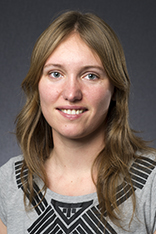
Valerie van Mulukom, Research Associate
Dr. van Mulukom holds a BA in Language and Culture Studies and an MPhil in Linguistics from Utrecht University, the Netherlands, and a PhD in psychology with a focus on the cognitive neuroscience of episodic memory and future thinking from The University of Auckland, New Zealand. Since getting involved with the study of religion during her PhD in Auckland, she uses her diverse background to think of new perspectives on the cognitive science of religion.
Her interests are in the cognitive underpinnings of religious belief, the interaction between religion and episodic memory (e.g., religious rituals and life narratives) and religion and episodic future thought (e.g., prediction and control). Other interests include imagination, counterfactual thinking, fluency and creativity.
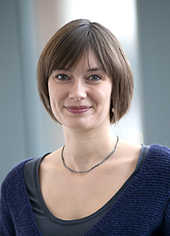
Kirstine Helboe Johansen, Associate Professor, School of Culture and Society - Church History and Practical Theology
Kirstine Helboe Johansen is a theologian educated at Aarhus University and holds a position as associate professor in practical theology. Her field of interest is contemporary religious practices, especially ritualised actions. In her research, Kirstine Johansen combines theories of cognition, religion and ritual with theological reflections in analyses of specific practices or clusters of practices in Christian churches. She is also a key figure in establishing empirical theology and the study of lived religion at Aarhus University.
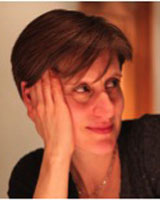
Dr. Esther Eidinow, Professor of Ancient History, University of Bristol
Dr. Eidinow has a BA in Literae Humaniores (Classics) and a DPhil in Ancient History from the University of Oxford, UK. She is an Assistant Professor in Ancient Greek History at the University of Nottingham, and specialises in ancient Greek religion and magic. She brings an interdisciplinary approach to her research, in particular working with anthropological and cognitive theories. Her research reflects her interest in how people cope with the uncertain future. Her books include: Oracles, Curses and Risk Among the Ancient Greeks (OUP, 2007, repr. 2013), which draws on the theories of Mary Douglas, to examine the evidence for two ritual activities—the consultation of oracles and writing of binding spells—as ways of expressing and managing risk; and Fate Luck and Fortune: Antiquity and Its Legacy (IB Tauris, 2011), which is the first monograph-length account of the nature and role of these concepts in ancient Greek culture across the Archaic and Classical periods, and uses the theory of schemas or cultural models as a basis for the analysis of evidence. Her latest book is an examination of the social role of emotions: Envy, Poison, and Death, Women on Trial in Classical Athens (OUP, 2015).
Her current projects explore the interaction between the individual and culture in the context of ancient Greek religion, using a networked or relational approach to Greek religion, and focusing on the role of narrative. With Luther Martin and William 'Lee' McCorkle, she is a co-founder and a senior editor of the Journal of Cognitive Historiography. In collaboration with Armin W. Geertz, she is Primary Investigator on the project: Cognitive Approaches to Ancient Religious Experience, funded by the AHRC, UK.
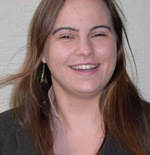
Anna-Konstanze Schröder, Ernst Moritz Arndt University of Greifswald (Practical Theology / Theological Faculty), Universität Leipzig (Institute for the Study of Religions / Faculty of History, Arts, and Oriental Studies)
Anna-Konstanze Schröder studied psychology (Diplom, cf. MA), study of religion and theology in Leipzig and Heidelberg. Focusing on psychology of religion and methods of cognitive social psychology (measuring implicit and explicit attitudes) she deals with interdisciplinary approaches to contemporary religion\s. Her research interests are mainly in the field of Psychology of Religion (conversion, religious experience, charisma/leadership, intergroup attitudes) and also include theory of science as well as New Religious Movements and deviant Christian movements since the 19th century. For her PhD project she developed a conversion theory which asserts a variability of cognitive change processes within a cognitive system of personal constructs. Her data show that this allows different social interpretations (gradual or sudden experience) for emphasizing one or the other process in the convert’s introspection. She has been teaching courses in psychology of religion, empirical methods, contemporary theories of religion, and distinguished leadership functions in selected religions (“Religiöse Spezialisten”). For more information, see: http://www.theol.unibe.ch/dep_evth/ipt/content/ueber_uns/personen/dr_schroeder_anna_konstanze/
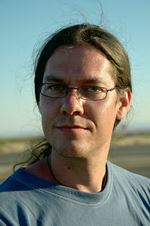
Radek Kundt, Assistant Professor, Department for the Study of Religions, Masaryk University, Czech Republic, Director of LEVYNA – the Laboratory for the Experimental Research of Religion (www.levyna.cz), and Advisory Board member of HUME lab – Experimental Humanities Lab (http://www.phil.muni.cz/whum)
Radek Kundt holds a PhD with distinction in Religious Studies from the Masaryk University. His research interests include neo-Darwinian approaches to the study of cultural phenomena (especially religion) and effects of situational religious priming and highly arousing rituals on social behaviour. He has several years of laboratory and field research experience in Mauritius and Czech Republic. Publications include
Contemporary evolutionary theories of culture and the study of religion (London: Bloomsbury Academic, 2015) and “Religious cognition and behaviour in autism: The role of mentalizing” (Reddish, P., Tok, P. & Kundt, R.; The International Journal for the Psychology of Religion 2015).

Joseph Bulbulia, Associate Professor, Victoria University, Wellington, New Zealand
Joseph Bulbulia is an Associate Professor in Religious Studies at Victoria University of Wellington, New Zealand. He is currently president of the International Association for the Cognitive Science of Religion (www.iacsr.com) (July 2014-July 201), and co-editor of Religion, Brain & Behavior. He is a core member of the New Zealand Attitudes and Values Study, a 20-year longitudinal study tracking over 15,000 New Zealanders each year (www.nzvalues.org). He is an associate investigator for Pulotu, a database of 116 Pacific cultures purpose-built to investigate the evolutionary dynamics of religion (www.abodeofthegods.org)
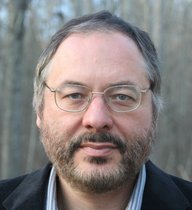
Peter Turchin, Professor, Department of Ecology and Evolutionary Biology (adjunct in Anthropology and in Mathematics), University of Connecticut and Vice-President of the Evolution Institute.
Peter Turchin was trained as a theoretical biologist, but over the last fifteen years he has been working in the field of historical social science that he and his colleagues call Cliodynamics (http://cliodynamics.info/). His research interests lie at the intersection of sociocultural evolution, historical macrosociology, economic history and cliometrics, mathematical modeling of long-term social processes, and the construction and analysis of historical databases. More specifically, he investigates two broad and interrelated questions: what general mechanisms explain the collapse of historical empires? And how did large-scale states and empires evolve in the first place? What are the social forces that hold together huge human conglomerates, and under what conditions do they fail? Turchin uses the theoretical framework of cultural multilevel selection to address these questions. Currently his main research effort is directed at coordinating a massive historical database of cultural evolution that will be used to test theoretical predictions coming from multilevel selection models.
Turchin has published more than 100 articles in peer-reviewed journals, including ten or so in Nature, Science, and PNAS. His publications are frequently cited, and in 2004 he was designated as “Highly cited researcher” by ISIHighlyCited.com. Turchin has authored five books. The most recent include Secular Cycles (with Sergey Nefedov, Princeton, 2009), War and Peace and War (Plume, 2005), and Historical Dynamics: Why States Rise and Fall (Princeton, 2003). In 2010, together with David Sloan Wilson and Jerry Lieberman, Turchin founded the Evolution Institute, which connects the world of evolutionary science to the world of public policy formulation. At the Evolution Institute, Turchin directs the project on Nation Building and Failed States.
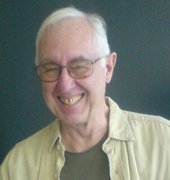
Luther H. Martin, Professor Emeritus, Department of Religion, The University of Vermont
Professor Martin specializes in the study of Hellenistic (Graeco-Roman) religions as well as in theoretical and methodological issues in the study of religion. In addition to graduate study at Universitäts Göttingen and post-graduate study at the American School of Classical Studies in Athens, Yeshiva University in New York City and the American Academy in Rome, he holds advanced degrees from Drew University (1962, 1963) and the Ph.D. from Claremont Graduate School (1972). He is a member and active participant in the American Academy of Religion, the Society for Biblical Literature, the Society for the Scientific Study of Religion, the International Association for the History of Religions, and the North American Association for the Study of Religion of which he is a founding member. He is furthermore Past President of the International Association for the Cognitive Science of Religion (IACSR) of which he is a founding member. He was Professor of Religion at the University of Vermont where he taught for over thirty years. He served as chair of the department from 1978-1991, was named a University Scholar in 1993-1994, and was the founder and first director of the John Dewey Honors Program of the College of Arts and Sciences from 1994-1996. His publications include: Hellenistic Religions: An Introduction (Oxford University Press, 1967), six edited volumes of essays on aspects of theory and method in the study of religion including, most recently, Theoretical Frameworks for the Study of Graeco-Roman Religions (University Studio Press, 2003), and over 50 scholarly articles and 35 reviews in his field as well as contributions to various dictionaries and encyclopedias. He currently serves on the editorial boards of Historical Reflections/Reflexions Historiques, Method & Theory in the Study of Religion, and Studies in Religion/Sciences Religieuses, and he is co-editor of the series Cognitive Science of Religion (formerly AltaMira Press, currently Berlin Academic). He is Senior Editor of Journal for the Cognitive Science of Religion (Equinox). He is also Distinguished International Fellow at the Institute for Cognition and Culture in Belfast.
His approach to the study of religion is historical and comparative as formulated theoretically according to scientific (academic) principles. He is currently interested in the empirical researches of cognitive psychologists and in social theory, especially as these are related to each other and as they may be tested by and be applied to historical and anthropological data.
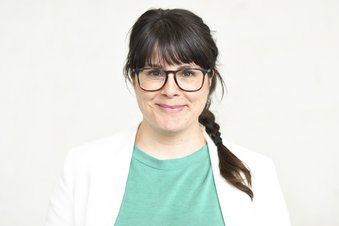
Ingela Visuri has a PhD in the Study of Religions from Södertörn University (Sweden) and pursues interdisciplinary research in the intersection between the humanities and cognitive science. She has a special interest in the human ability for empathy and mental simulations (e.g. mentalization and role-taking) and the role such cognitive mechanisms play in human interaction, and has published on topics such as supernatural relationships, embodied supernatural experiences, imagination and parasocial relations. In her empirical work, she draws on an anthropological mixed-methods approach, which means that subjective narratives form the basis for the building of cognitive hypotheses and are combined with psychometric tests that cast light upon underlying traits that may contribute to various experiences and interpretations. Visuri’s background in the humanities has also inspired an interest in methodological issues, such as the bridging between epistemologies and methodological considerations in the study of atypical cognition.
Visuri moreover runs the Nordic Network for the Cognitive Science of Religion in collaboration with Aarhus scholar Uffe Schjødt and is currently working to introduce the cognitive science of religion to a broader academic audience in Sweden, for instance by teaching courses that relate to this research field. She is also part of the editorial board of the Swedish magazine Religion which publishes popular scientific articles on current research in the Study of Religions.
Website: https://ingelavisuri.academia.edu/
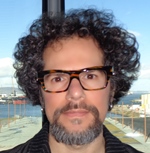
Paulo Sousa, Director of the Institute of Cognition and Culture and Senior Lecturer in Cognitive Anthropology, Queen’s University, Belfast, Northern Ireland
Dr Paulo Sousa is Director of the ICC and Senior Lecturer in Cognitive Anthropology. He holds a BA and a MA in anthropology (University of Brasilia, Brazil), a MA in cognitive science (Institut Jean Nicod, Paris), and a PhD in anthropology with specialization in cognition and culture (University of Michigan, USA). He has participated in many cross-cultural projects and published numerous articles in the field of cognition and culture. He also applied an epidemiological approach to the history of ideas of anthropology that stimulated a major controversy. His current research interests focus on agency, moral psychology and inter-group conflict as well as their relation to religion. He is currently writing a book on how ordinary people conceptualize the relationship between harm and morality. See Sousa's publications in http://www.qub.ac.uk/schools/InstituteofCognitionCulture/Staff/Sousaspublications/#d.en.151215
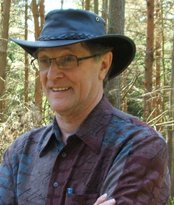
Donald Wiebe, Professor, Department of Study of Religion and Trinity College, University of Toronto
Professor Wiebe’s primary areas of research interest are philosophy of the social sciences, epistemology, philosophy of religion, the history of the academic and scientific study of religion, and method and theory in the study of religion. He has served with distinction in his capacities as Professor as well as Dean and Vice-Provost of the Faculty of Divinity and the Faculty of Arts at Trinity College. He was, furthermore, Associate Director of the Centre for the Study of Religion at the University of Toronto. He has served as Congress Director of two world congresses of the International Association for the History of Religions (IAHR) in 1980 and 2010. He has served as a member of the Executive Committee of the IAHR (1985-1995 and Treasurer 1995-1998). He is Honorary Life Member of the IAHR.
Professor Wiebe is the author of Religion and Truth: Towards and Alternative Paradigm for the Study of Religion (1981), The Irony of Theology and the Nature of Religious Thought (1991), Beyond Legitimation: Essays on the Problem of Religious Knowledge (1994), and The Politics of Religious Studies: The Continuing Conflict with Theology in the Academy (1999). He has edited several books and sets of congress proceedings, and edits the series TORONTO STUDIES IN RELIGION for Peter Lang Press. In 1985 Dr. Wiebe, with Luther H. Martin and E. Thomas Lawson, founded the North American Association for the Study of Religion which became affiliated to the IAHR in 1990; he twice served as President of that Association (1986-87, 1991-92). He was, furthermore, founding member of the International Association for the Cognitive Science of Religion (IACSR).
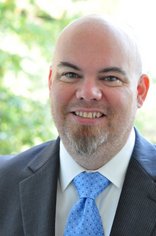
William “Lee” W. McCorkle Jr., Ph.D., Director of the Laboratory for the Experimental Research of Religion (LEVYNA) and Associate Professor and Research Specialist in the Department for the Study of Religions at Masaryk University, Brno, Czech Republic
Dr. McCorkle is an evolutionary and cognitive anthropologist interested in ritual, language, and communication. He earned his Ph.D. from the Institute of Cognition and Culture at Queen’s University in Belfast, one of the world’s premiere centers for research on cognition, culture, and religion. He has conducted fieldwork in India and Japan and devised original experiments to compare individual personality traits, ritualized behaviors, disgust, and evolved cognitive mechanisms (i.e. Theory of Mind). In 2010, he authored Ritualizing the Disposal of the Deceased: From Corpse to Concept, New York: Peter Lang, an academic monograph on a scientific theory for mortuary behavior cross-culturally throughout human evolution. Dr. McCorkle currently serves as Associate Editor for the Cognitive Science of Religion series with Berlin Academic and the Treasurer for the International Association for the Cognitive Science of Religion (IACSR).
Dr. McCorkle’s latest research includes a robust program of connecting institutional centers internationally into a collaborative research agenda, including the foundations for “innovative methodologies” in cognitive historiography; cognitive science of religion and ritual; economic and behavioral games; developmental psychology, learning and creativity; eye-tracking and movement; sound and synchrony; and with Dimitris Xygalatas an overall research program in experimental anthropology (both in the field and in the laboratory). In 2012/2013, McCorkle and Xygalatas will release an edited volume: Mental Culture: Towards a Cognitive Science of Religion, London: Equinox, presenting theoretical, methodological, classical and emerging connections between anthropology, religious studies, psychology, and the philosophy of science, by some of the leading theorists in the Cognitive Science of Religion. In addition, McCorkle currently is preparing several articles and chapters on disgust, personality, and social intelligence, and a second monograph on the topic of “ritual” from an evolutionary perspective.
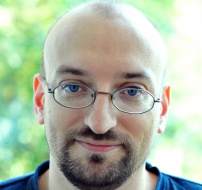
Dr. Aleš Chalupa, Professor and Chair of the Department for the Study of Religions, Faculty of Arts, Masaryk University, Brno, Czech Republic and Research Fellow, Laboratory for the Experimental Research of Religion (LEVYNA)
His current research interests are ancient religions and cognitive historiography. In this field he has recently published various articles, especially “What Might Cognitive Science Contribute to Our Understanding of the Roman Cult of Mithras” (in: Luther H. Martin – Jesper Sørensen [eds.], Past Minds: Studies in Cognitive Historiography, London: Equinox 2011, 107-124), “Why Did Greeks and Romans Pray Aloud? Anthropomorphism, Dumb Gods and Human Cognition“ (in: Donald Wiebe – Panayotis Pachis [eds.], Chasing Down Religion: In the Sights of History and the Cognitive Sciences, Thessaloniki: Barbounakis Publications 2010, 81-95) and “Pythiai and Inspired Divination in the Delphic Oracle: Can the Cognitive Sciences Provide Us With An Access to ‘Dead Minds’?“ (in Dead Minds, in press). As part of the LEVYNA project Aleš plans to combine recent experimental research in the cognitive science of religion with historical methods.
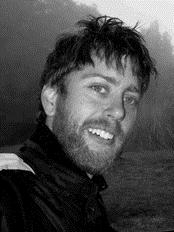
Quentin Atkinson, Senior Lecturer, Rutherford Discovery Fellow, School of Psychology, University of Auckland, New Zealand
Quentin Atkinson has a background in psychology and evolutionary biology. His research uses computational models of genetic and cultural evolution to answer questions about the spread of people and culture. His work covers the origin and evolutionary dynamics of language, human cooperation and religion, as well as the human expansion from Africa. Quentin's work at the University of Aarhus and the Institute of Evolutionary and Cognitive Anthropology, University of Oxford, was part of the Explaining Religion (EXREL) project, funded by the European Commission, an interdisciplinary research project that sought to understand both what is universal and cross-culturally variant in religious traditions as well as the cognitive mechanisms that undergird religious thinking and behavior.
Since Darwin, it has been recognized that human cultures and languages evolve in ways that parallel the evolution of species. These parallels of process mean that methods and thinking from biology can be used to shed light on the evolution of language and culture. Dr. Atkinson’s research uses these tools to understand how human culture evolves and the importance of culture for the evolution of our species. This includes work on the evolution of language, religion, cooperation and the human expansion from Africa.
Dr. Atkinson is Associate Editor for Evolution and Human Behavior, and on the editorial boards of Human Biology and Diachronica.
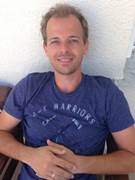
Panagiotis Mitkidis, Assistant Professor, School of Culture and Society - Centre for Interacting Minds (IMC), Aarhus University, Denmark
Originally from Greece, Panos spends his time between Denmark & the USA. He is an assistant professor of Behavioral Economics at the Department of Management, Aarhus University and visiting scholar at the Social Science Research Institute, Duke University. He is aligned with three centers: the Center for Advanced Hindsight at Duke University, the Interacting Minds Centre, and the Interdisciplinary Centre for Organisational Architecture at Aarhus University. His research lies in the fields of Behavioural Economics, with a special interest in how rituals affect moral behavior and can be life-changing. He studies human behavior and he hopes that understanding trust and cooperation will make the world a more caring place. He is married to Katerina Peterkova and when he rarely has free time he likes biking, cooking, and drinking wine with his friends. His most recent accomplishment is a little boy named Dimitrios.
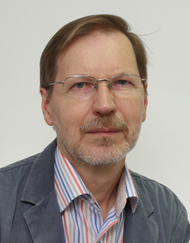
Risto Uro is University Lecturer of New Testament Studies at the University Helsinki, Faculty of Theology, and a life member of Clare Hall College, University of Cambridge.
Risto Uro is a New Testament and Early Christian scholar, who received his doctoral degree from the University of Helsinki in 1988. His work covers such areas as the Synoptic Gospels, the Nag Hammadi Library, and the social history of early Christianity. In the 1990s, Uro led two collective research projects, funded by the Academy of Finland, on the “Gospel of Thomas” and “Gnosticism and Early Christian Culture”, respectively. More recently Uro has pioneered in developing cognitive science approaches to early Christianity. His particular interest is in ritual theory and cognitive theories of ritual. He is currently directing a Nordic research project on “Ritual and the Emergence of Early Christian Religion: A Socio-Cognitive Analysis” (2013–17), which aims at integrating historical, social and cognitive approaches to account for the role of ritual in the rise of early Christianity.
Uro has published more than 50 articles in academic journals and edited volumes. He has authored, edited and co-edited numerous books, including Thomas: Seeking the Historical Context of the Gospel of Thomas (Continuum 2003), Explaining Christian Origins and Early Judaism: Contributions from Cognitive and Social Science (Brill 2007, co-edited with Petri Luomanen and Ilkka Pyysiäinen), and Mind, Morality and Magic: Cognitive Science Approaches in Biblical Studies (Acumen 2013, co-edited with István Czachesz). Uro is also leading a team of scholars editing The Oxford Handbook of Early Christian Ritual (forthcoming).
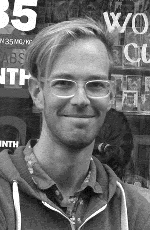
Michiel van Elk, Assistant Professor, University of Amsterdam
Dr. van Elk studied philosophy, biological psychology and the psychology of religion and culture. Following his PhD in cognitive neuroscience at the Donders Institute in Nijmegen, the Netherlands, he conducted research at the UCSB in the US and the EPFL in Switzerland, working on topics like embodied cognition, action semantics and body perception. Having been awarded a research grant on the topic of the cognitive science of religion, he has been employed since 2013 at the University of Amsterdam. By integrating methods from different disciplines (e.g. psychophysics, subjective reports, field studies, neuroimaging) he focuses on topics like (1) the relation between religion and agency detection, (2) absorption and spiritual experiences and (3) illusory control and magical thinking. For more information, see: http://relcog.com/People/Michiel%20van%20Elk.html

Jonathan Lanman, Acting Director, Institute of Cognition & Culture, Lecturer in Anthropology/Cognition & Culture, Queen’s University Belfast
Jonathan Lanman has a background in both social and cognitive anthropology (MSc., DPhil, Oxford) as well as religious studies (M.A. Missouri) and has taught anthropology at Oxford, Cambridge, and QUB. He is interested in applying the theories and tools of both social and cognitive anthropology to issues in the study of religion, atheism, morality, and intergroup relations. His DPhil research yielded both a descriptive and explanatory account of atheism in the contemporary West, which he is writing up as a monograph. At present, he is collaborating with anthropologists and psychologists on several large international grants funded by the ESRC and JTF to better understand the effects of ritual on identity and intergroup relations. For more information, see: http://www.qub.ac.uk/schools/SchoolofHistoryandAnthropology/Staff/AcademicStaff/DrJonathanLanman/

Maria Sommer, Classical Archaeologist (MA) at Aarhus University
She is the author of the monograph: Care, Socialization and Play in Ancient Attica – A Developmental Childhood Archaeological Approach, which is an interdisciplinary publication combining Classical Archaeology with Developmental and Evolutionary Psychology (2015). In the book, she establishes a paradigm shift in the study of ancient Greek culture using archaeological methodology with written texts and theory originating from psychology. She is in general specialized in Childhood Archaeology and in particular the study of children in ancient Attica. She is currently investigating the social mechanisms of the ancient Athenian oikos (home, household, family, private sphere): identity and relationship dynamics and sacred activity.